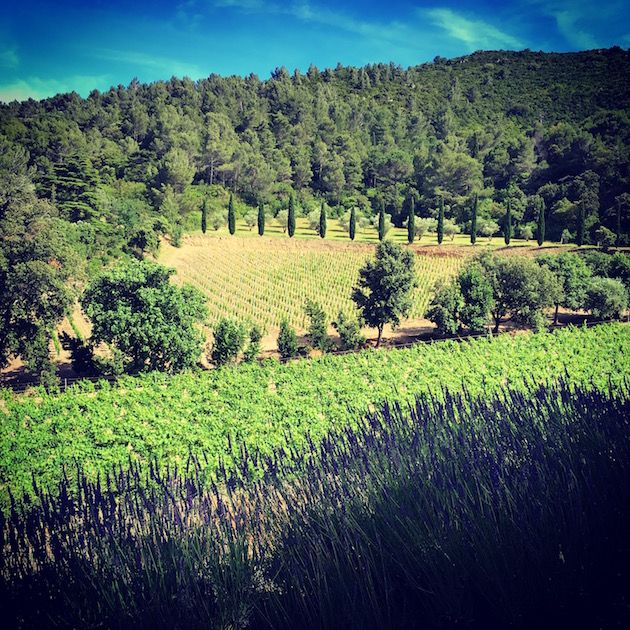Buying one of the top châteaux in the Corbières and re-packaging and launching new product ranges – including a critically-acclaimed artisanal range – are just some of the ways that Foncalieu, one of France’s largest cooperatives, is gaining influence in the premium on-trade.
When I accepted an invitation to visit the giant French cooperative in the Languedoc, Les Vignobles Foncalieu, I little imagined I would be laying in an infinity pool, under an azure blue sky, gazing out over newly planted Viognier vines.
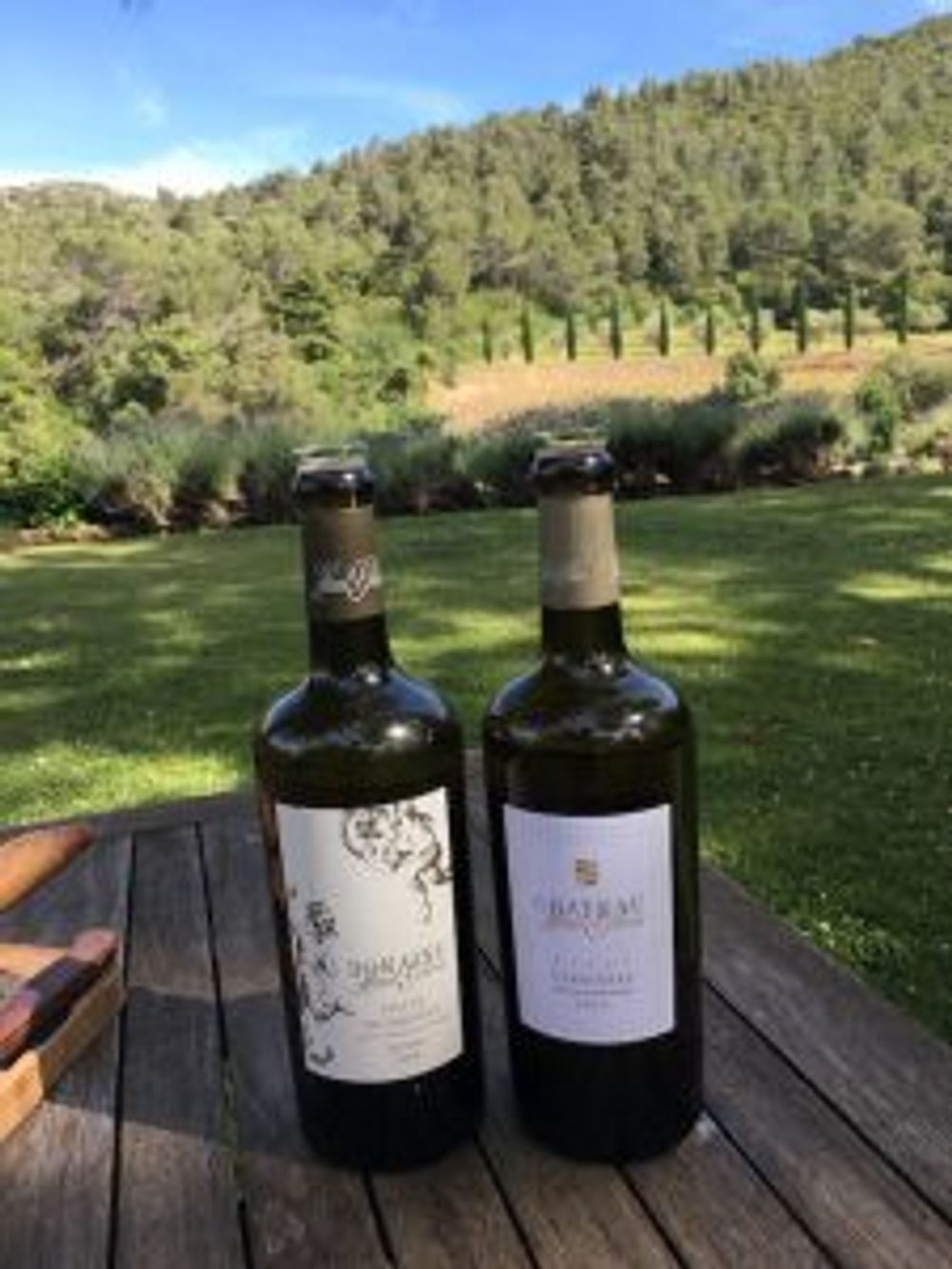
Decisions decisions
Then sipping a glass of excellent chilled white Haut-Gléon on a sun lounger in the grounds of a Château that comes straight out of the pages of Condé Nast Traveller.
I was sort of expecting to be shown round a chemical works-sized wine factory, wearing a hard hat.
The next day we were tasting single vineyard red wines from Foncalieu’s Atelier Prestige range in the dappled shade of a mulberry tree with the winemakers – wines that could grace the quality portfolio of any major wine producer.
Wines that have been scoring well with Robert Parker, no less.
Had I got my dates wrong? This was the same Foncalieu – the cooperative that produces 27 millions of bottles of wine a year, has 1200 winegrowers and last year turned over a cool €65m? The same.
The journey begins
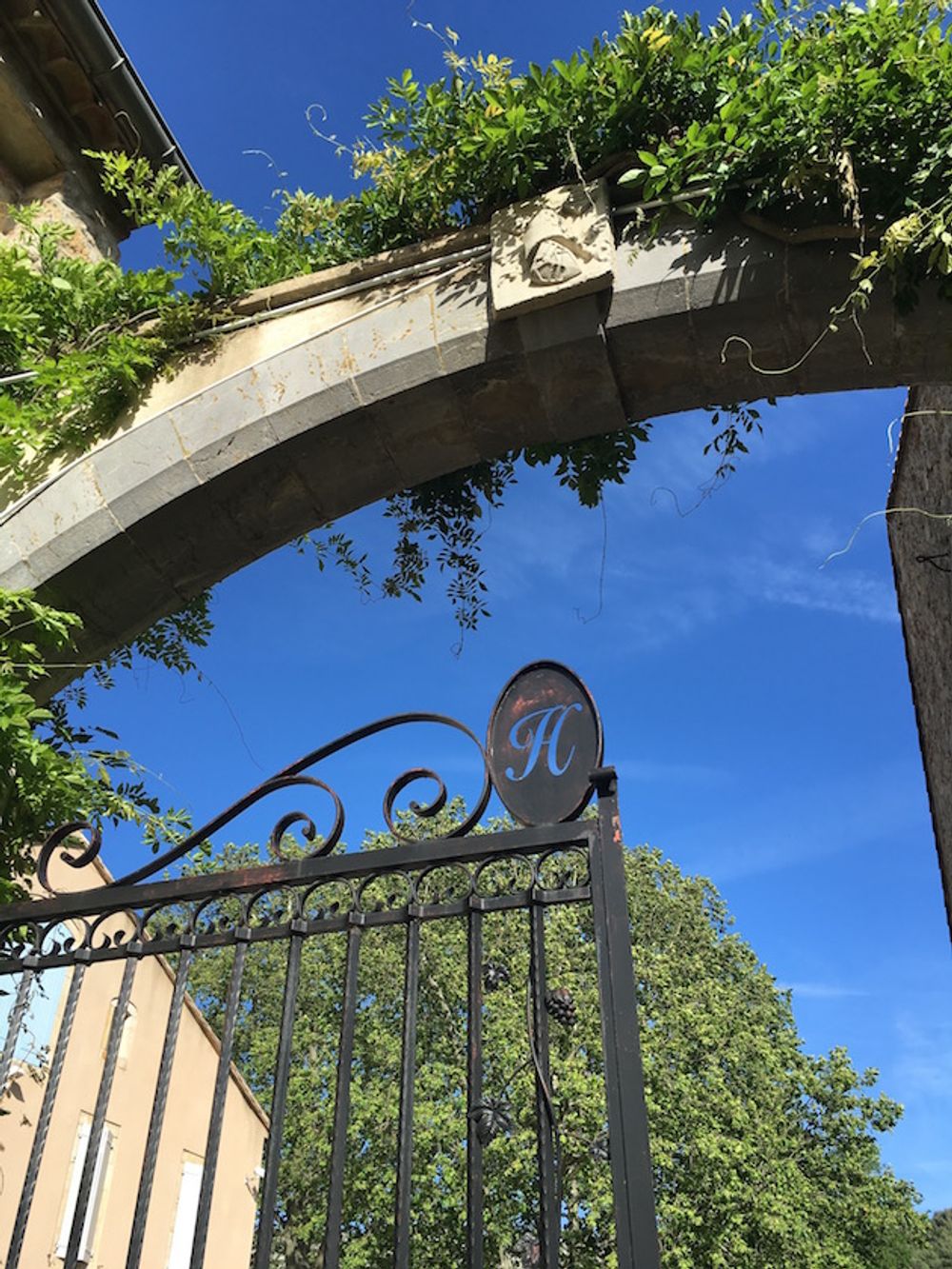
Where my visit begins is Chateau Haut-Gléon, a majestic château in the Corbières built in the 13th century on a 260 acre estate, with 35 hectares of sun-kissed vines, an old Roman road and a winery that has been producing classy wines for many years.
Oh, did I mention the infinity pool?
As soon as your car turns onto the gravel drive and you are hit by the sound of cicadas and the smell of the garrigue herbs, any preconceptions of Foncalieu start dissipating in the heat haze.
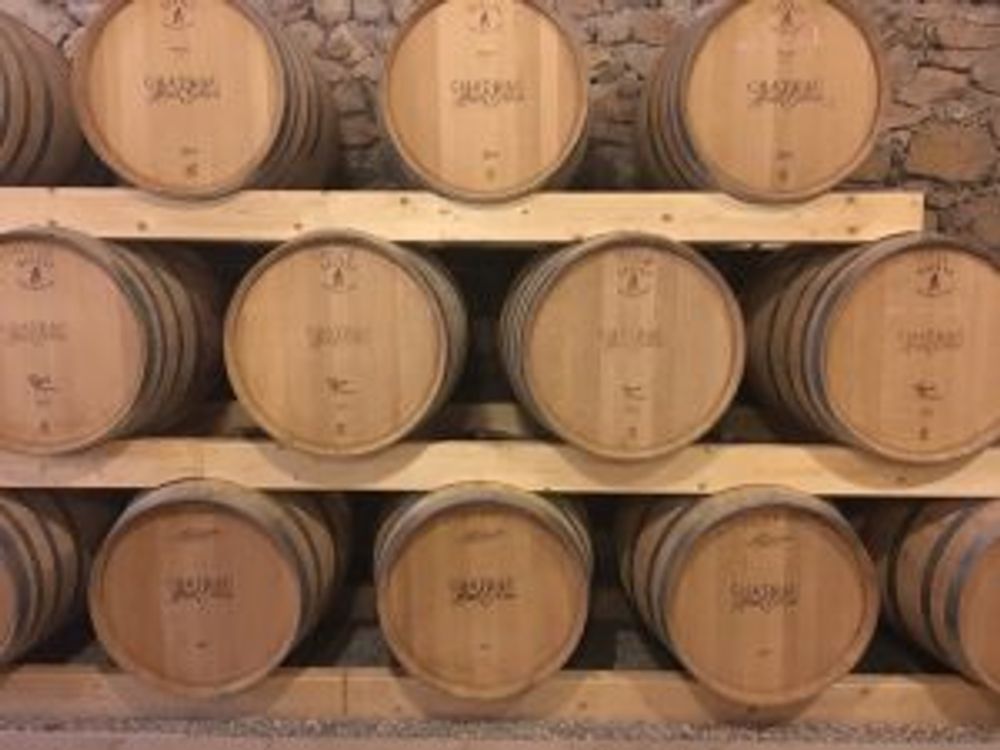
The barrel room of Château Haut-Gléon, that has been making quality wines for years
Haut-Gléon was bought in 2012 by Foncalieu as a going concern – a flagship wine estate in its own right with a marvellous reputation for many years – and a château that acts as a premium hospitality destination.
It is also a physical manifestation, if you will, of the company’s desire to go upmarket.
Engaging with the premium market is a key part of the company’s overall future strategy – to be seen as an upmarket cooperative.
Foncalieu has repackaged the nine Haut-Gléon wines, streamed them into three levels – Domaine, Les Sources and Château – and got one one iconic wine in there as well, Cuvée Notre Dame. The Haut-Gléon wines are top of the range Languedoc blends that have for years quite rightly got a reputation of their own.
Foncalieu’s three new premium sub-brands
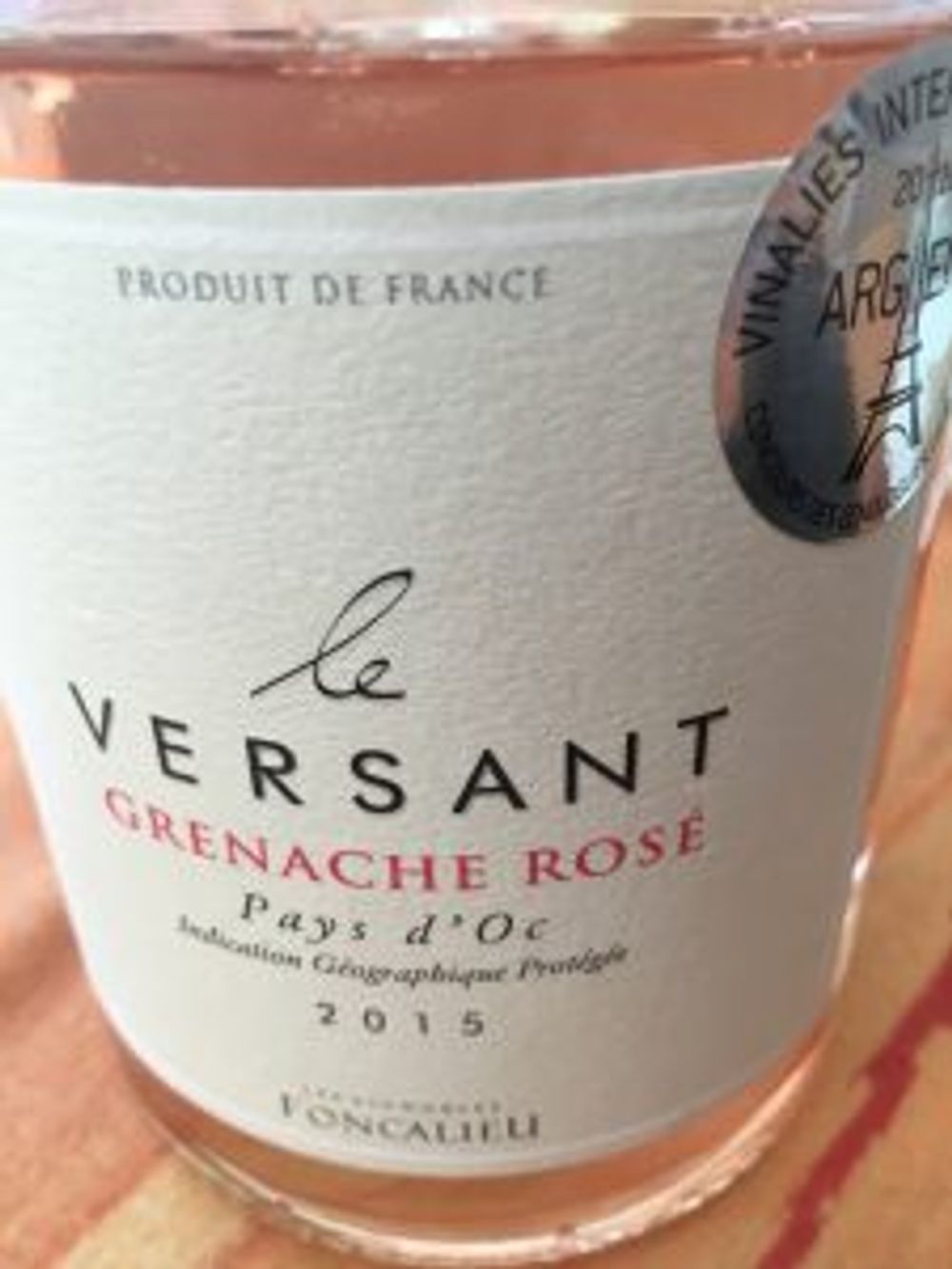
The other sub-brands that make up Foncalieu’s premium portfolio are Le Versant, Les Extraordinaires, and Atelier Prestige. Together they account for 29 wines of Foncalieu’s enormous portfolio.
Le Versant is that rarest of things, a collection of single varietal (and single style) French wines with the packaging centred on the varietal and not the provenance. Foncalieu has a number of other Cépages wines in its portfolio but Le Versant is the premium brand within that style of winemaking.
Les Extraordinaires is an umbrella brand for a collection of individual wines that are either non-native varietals (Albarino), rare varietals (Piquepoul Noir) or one-off blends (Syrah-Viognier).
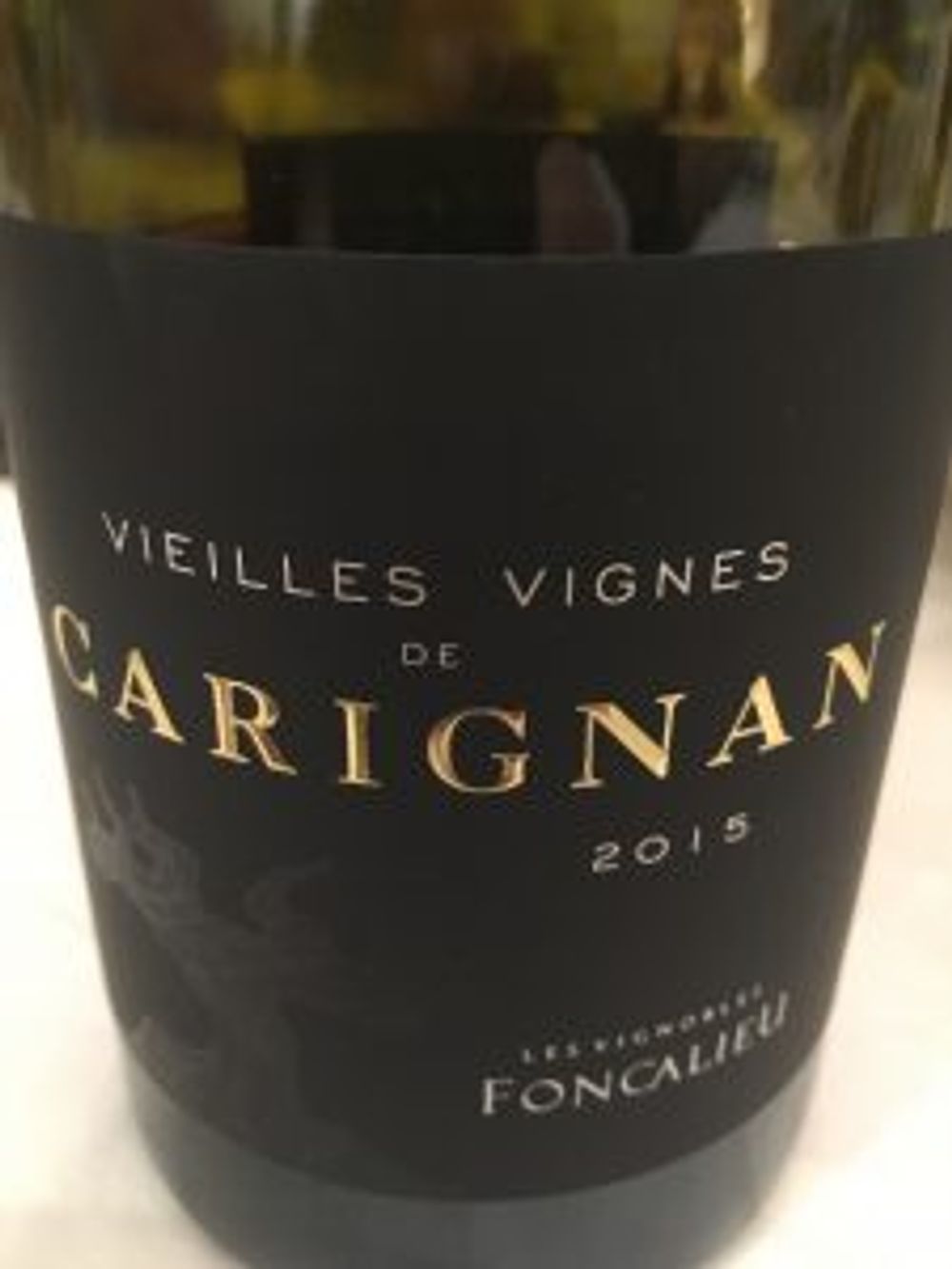
There’s a number of gems in this range – a Rosé made from Grenache Gris called Griset, a white St Chinian blend called Petit Paradis and an old vines Carignan that punched way above its price tag.
But Foncalieu is giving special attention to Atelier Prestige, a project whose aim is put the spotlight on exceptional winegrowers in four appelations of the Languedoc, and to offer a variety of styles and varietals under one brand.
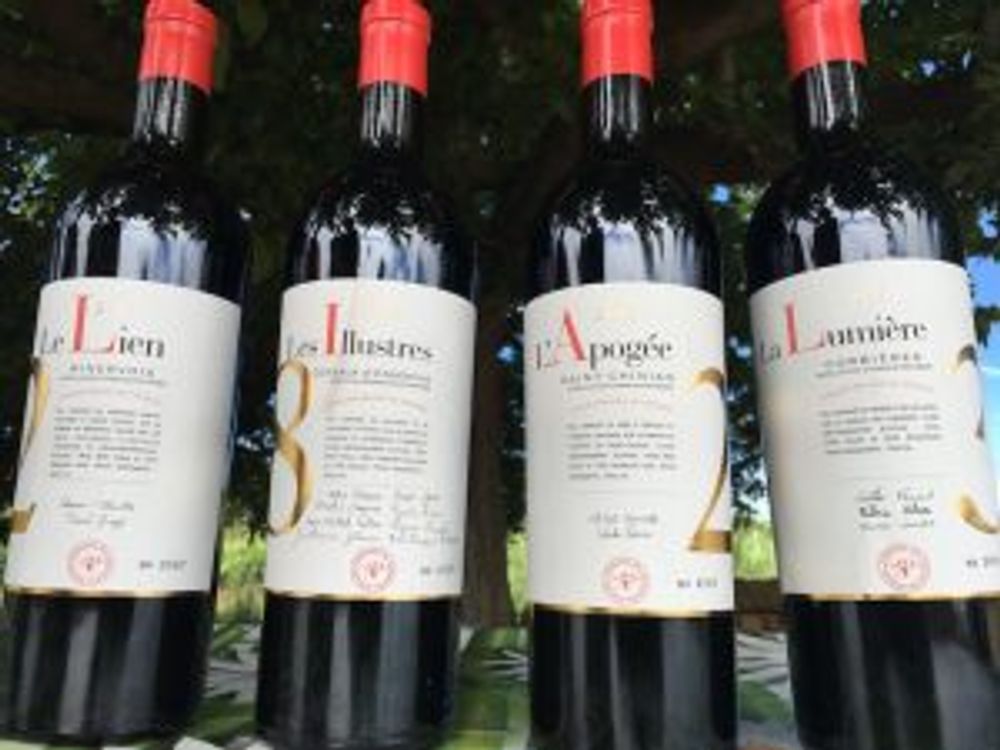
Special attention is given to the Atelier Prestige range of single vineyard Languedoc blends. The packaging is very much centred around the winemakers themselves who grace the reverse label of each of the four wine range.
Le Lien is from Minervois, La Lumière from Corbières, L’Apogée from St Chinian and Les Illustres from Coteaux d’Enserune. All four wines are for those of us who like to have a powerful well made red, held together by a decent spine of acidity.
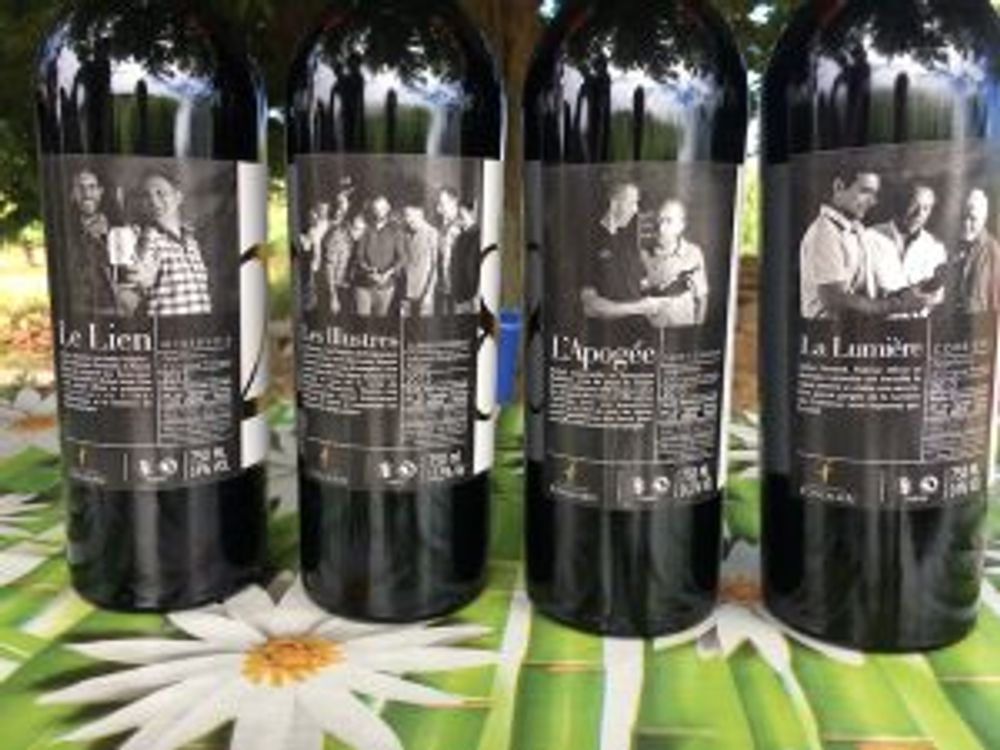
At the tasting we all had our individual favourites, but what was clear was that this was class wine-making and a way of highlighting not only the merits on the individual talents but the large wine-making team at Foncalieu and the standards of quality that they set.
Overseeing the winemaking is a mammoth logistical exercise
Isabelle Pangault, the head winemaker at Foncalieu had just been working on a vinification plan that helps her make this extraordinary amount of wine from 1,200 growers who are tending plots of varying size from 0.1 hectare to over 100.
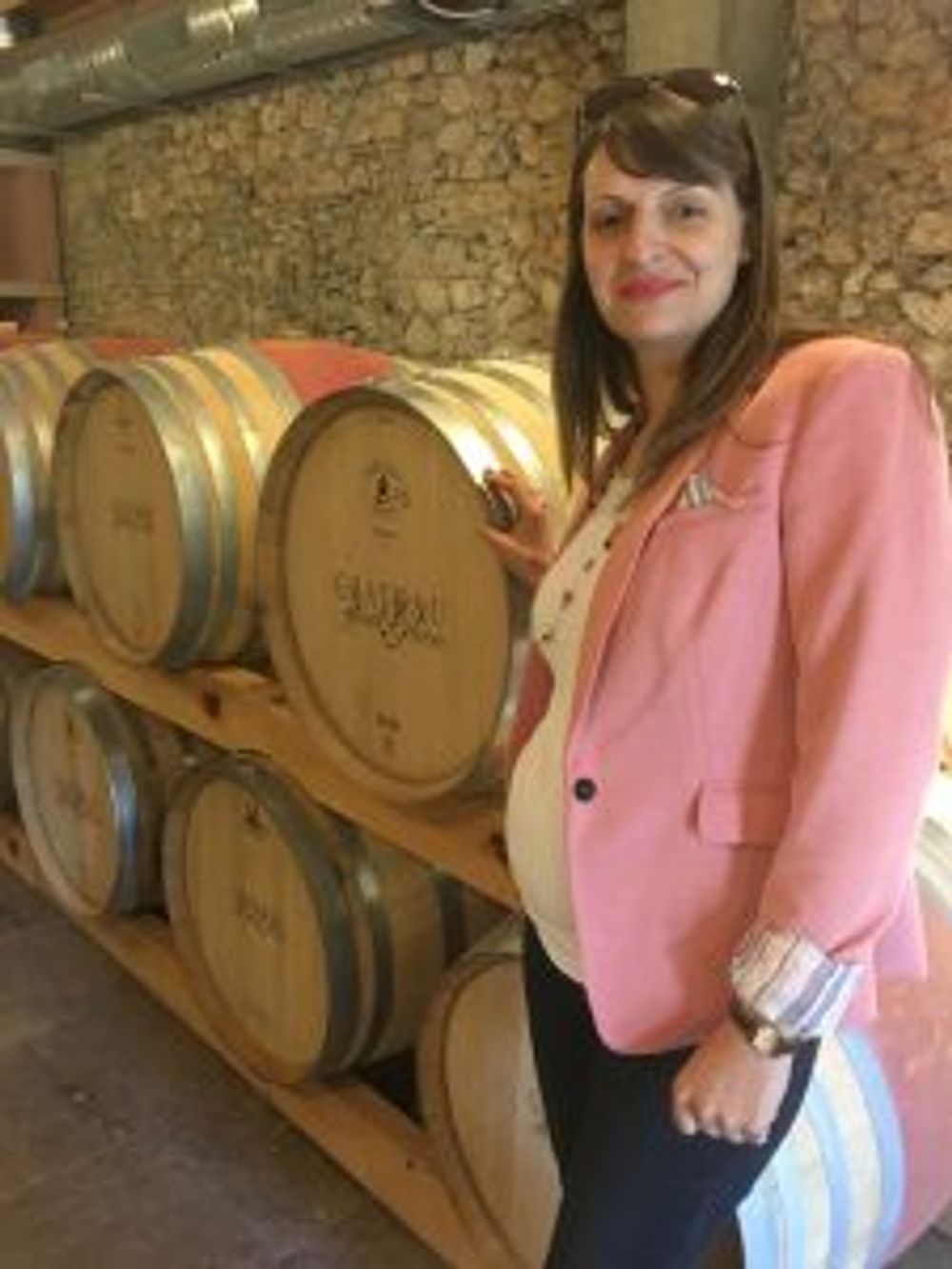
Isabelle Pangault, the head winemaker at Foncalieu
Foncalieu has 4,500 hectares under vine, works across three major wine regions, the Languedoc, Côtes-de-Gascogne and the Rhône, and has to operate within the guidelines of 20 different appellations.
It is an exercise in logistics if nothing else – the vinification plan has 100 lines including delivery of grapes, wines, profiles, blends productions, orders, you name it.
Having studied oenology at Montpellier like so many fellow winemakers in this part of the world, she is a strong believer in the change that has happened in the Languedoc from when it was France’s wine lake to nowadays when quality simply has to match consumer demand.
“The hardest work anywhere in France has been done in the Languedoc in the past 30 years,” she says.
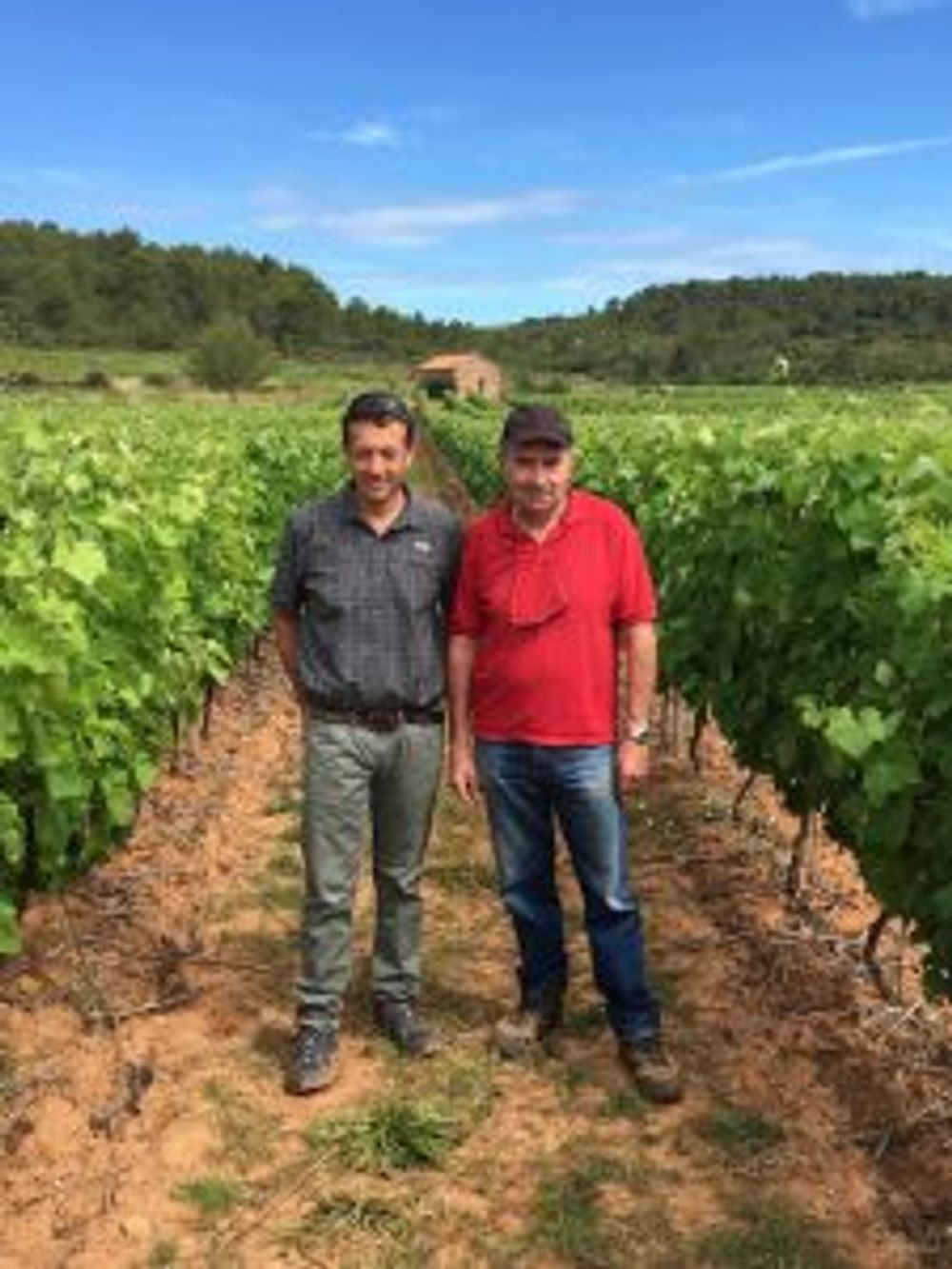
Gabriel Ruetsch (left) with Michel Cazevieille, one of the winemakers behind the Atelier Prestige label
Pangault has a sizeable team underneath her, although none of this would be possible without having a right-hand man in the field.
His name is Gabriel Ruetsch, from Argentina, and he is Foncalieu’s chief agronomist, in other words he is the one getting his boots dirty in the vineyards.
“Isabelle needs good ingredients, it’s like a chef in a restaurant, they need good ingredents to start with. My job is to bring her good ingredients. It’s like a football team, the winemaker makes the goal. I’m not Messi I’m Mascherano.”
On our visit, it is clear that Ruetsch and Pangault generate a great deal of respect amongst winegrowers like Michel Cazevieille who are making quality wines with the cooperative.
All For One and One For All
Although the press visit starts at the Château, Foncalieu’s own journey as an institution started in 1901 with the Vignerons Libres de Maraussan, the first cooperative winery in France.
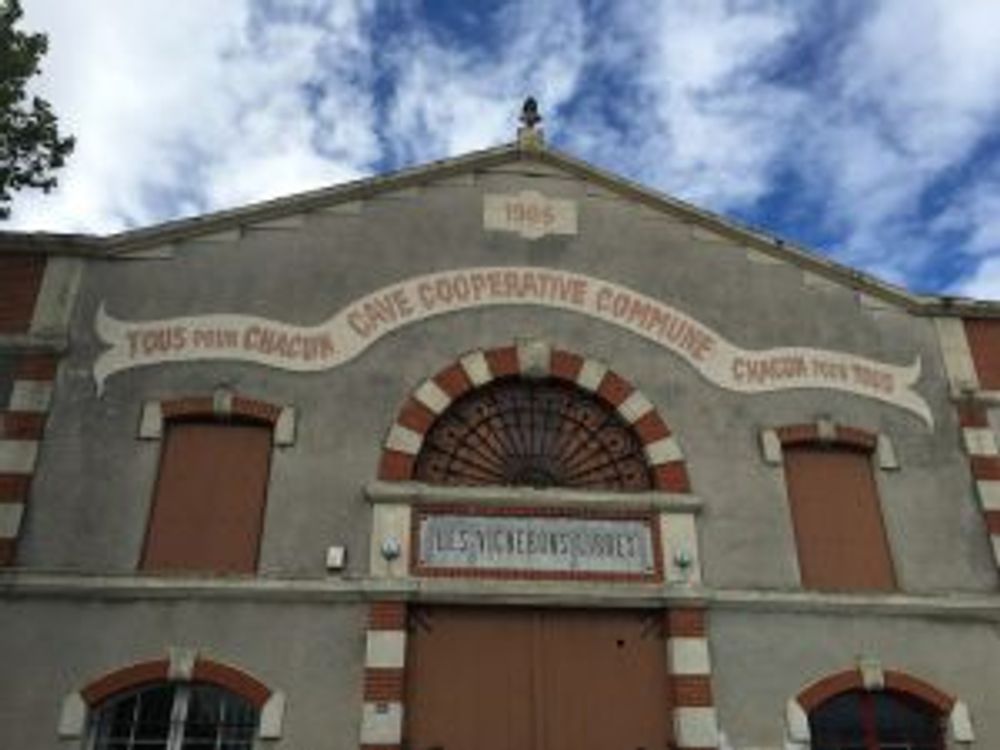
The facade of France’s first ever wine cooperative
Staring at the enormous façade of this living monument to what was then a new style of agricultural model, it is easy to see why cooperatives took off. ‘All For One and One For All’ is the motto carved above the giant doors that lead through to vast 500,000 litre vats and the largest barrels imagineable.
It is to my host’s credit that they bring us here to see the origins of the French cooperative. They are clearly proud to be part of his tradition in a part of France that has not lost its Socialist (and in some parts Communist) roots.
The slogan is a fitting reminder of the egalitarianism that is core to the founding principle of the cooperative not just in France but whichever country it may be founded in, and is key to the principles of the way Foncalieu appears to be doing business with 1200 growers.
It shows that Foncalieu has not forgotten its roots and at the same time shows how far it has come.
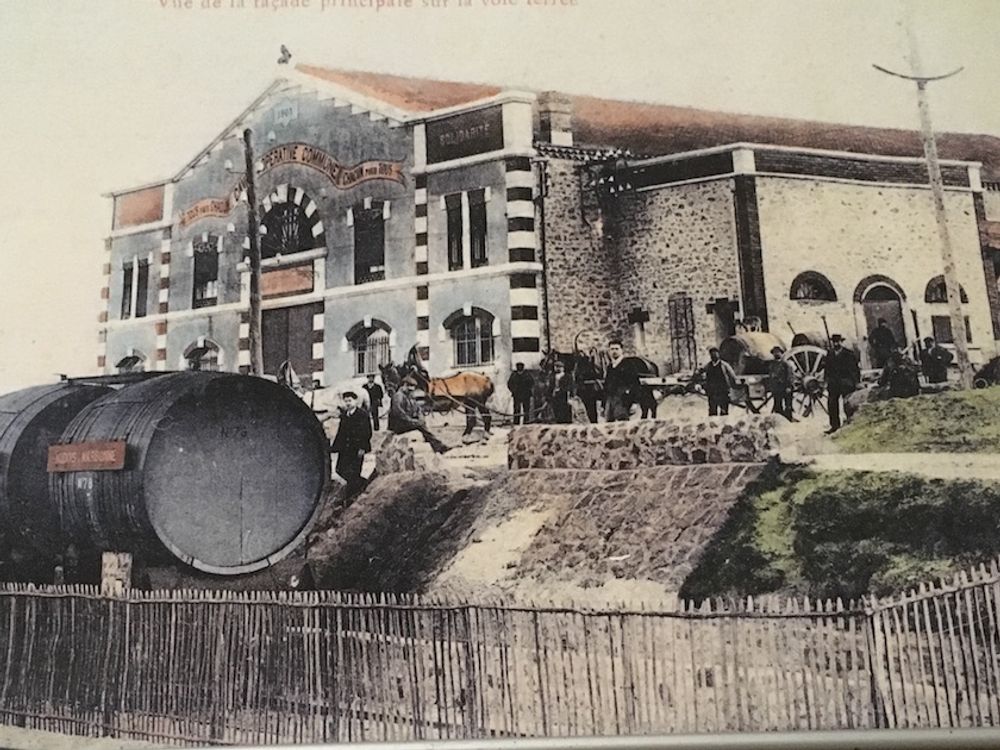
The Vignerons Libres de Maraussan, France’s first ever cooperative in the early part of the Twentieth Century, shortly after it was built in 1901.
